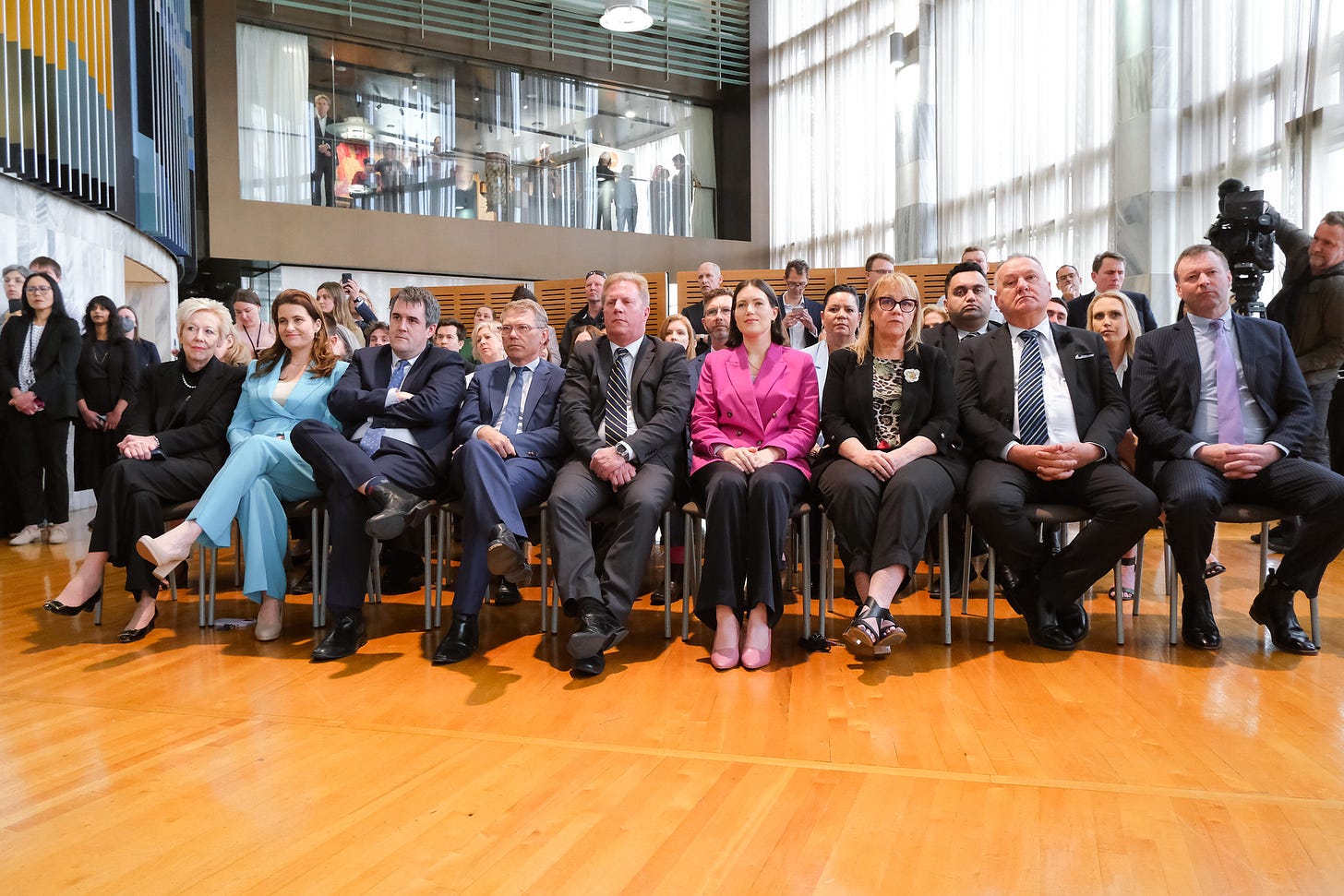
TL;DR: The five things that mattered in Aotearoa’s political economy that we wrote and spoke about via The Kākā and elsewhere for paying subscribers in the last week included:
The new National-ACT-NZ First coalition Government completed the 49 tasks it set itself in its 100-day plan on Friday, using urgency in Parliament more than any recent Government to pass repeals of RMA, Smokefree, Three Waters, Auckland Fuel Levy, Clean Car Discount and RBNZ employment mandate legislation, and to introduce its Fast-track Approvals Bill. See Friday’s email.
In an effort to save $340 million a year, the new Government announced plans to slash the number of motel vouchers given out to homeless families, arguing many could and should stay with friends and family instead. See Thursday’s email.
The new Government announced various policies this week forcing councils and others to increase their rates and prices, adding to inflationary and mortgage rate pressures it had vowed to reduce. See Wednesday’s email.
The new Government unveiled its draft transport policy, surprising voters with a $50 increase in car registration fees, 22c/litre of increases in fuel taxes from 2027 and plans for privately-run toll roads, congestion charges and a new system of road-user charges based on weight of vehicles and kilometres travelled. See Tuesday’s email.
PM Christopher Luxon’s decision to claim $1,000/week in expenses from taxpayers for living in his own apartment in Wellington when he could have lived in Premier House again illustrated how our society has become a housing-market-with-bits tacked-on. See Monday’s email.
What we talked about on ‘The Hoon’ on Thursday night
In this week’s podcast above of the weekly ‘Hoon’ webinar for paying subscribers at 5pm on Thursday night:
5:00 pm - 5:20 pm -
and Peter Bale opened the show with a discussion about the loss of more than half of the nation’s television news journalists in a fortnight, along with comments by David Seymour, the SOEs minister reviewing TVNZ’s status, that were critical of a TVNZ journalist on a day when half the newsroom was sacked.5.20 pm - 5.35 pm - Peter, Bernard, and
talked about the latest developments in Ukraine and the Middle East.5.45 pm -6 pm - Peter, and Bernard spoke with Environmental Defence Society CEO Gary Taylor about the Government’s Fast-track Approvals bill, which he has described as ‘the Government’s war on nature going nuclear.’
The Hoon’s podcast version above was produced by Simon Josey.
(This is a sampler for all free subscribers. Thanks to the support of paying subscribers here, I’m able to spread the work from my public interest journalism here about housing affordability, climate change and poverty reduction around in other public venues. I’d love you to join the community supporting and contributing to this work with your ideas, feedback and comments.)
Other places I appeared this week
I talked with Kiwibank CEO Steve Jurkovich for When The Facts Change via The Spinoff about the RBNZ’s decision to hold the OCR, the likely introduction of DTI controls offset by a loosening of LVR controls, the challenge for banks and insurers to work together on climate risks, and the battle banks and their customers are having with scammers. Kiwibank sponsor When The Facts Change.
We also produce this 5 in 5 with ANZ daily podcast and Substack for ANZ Institutional in Australia, which you can sign up to via Spotify and Apple and Youtube for free.
Ka kite ano
Bernard











Share this post